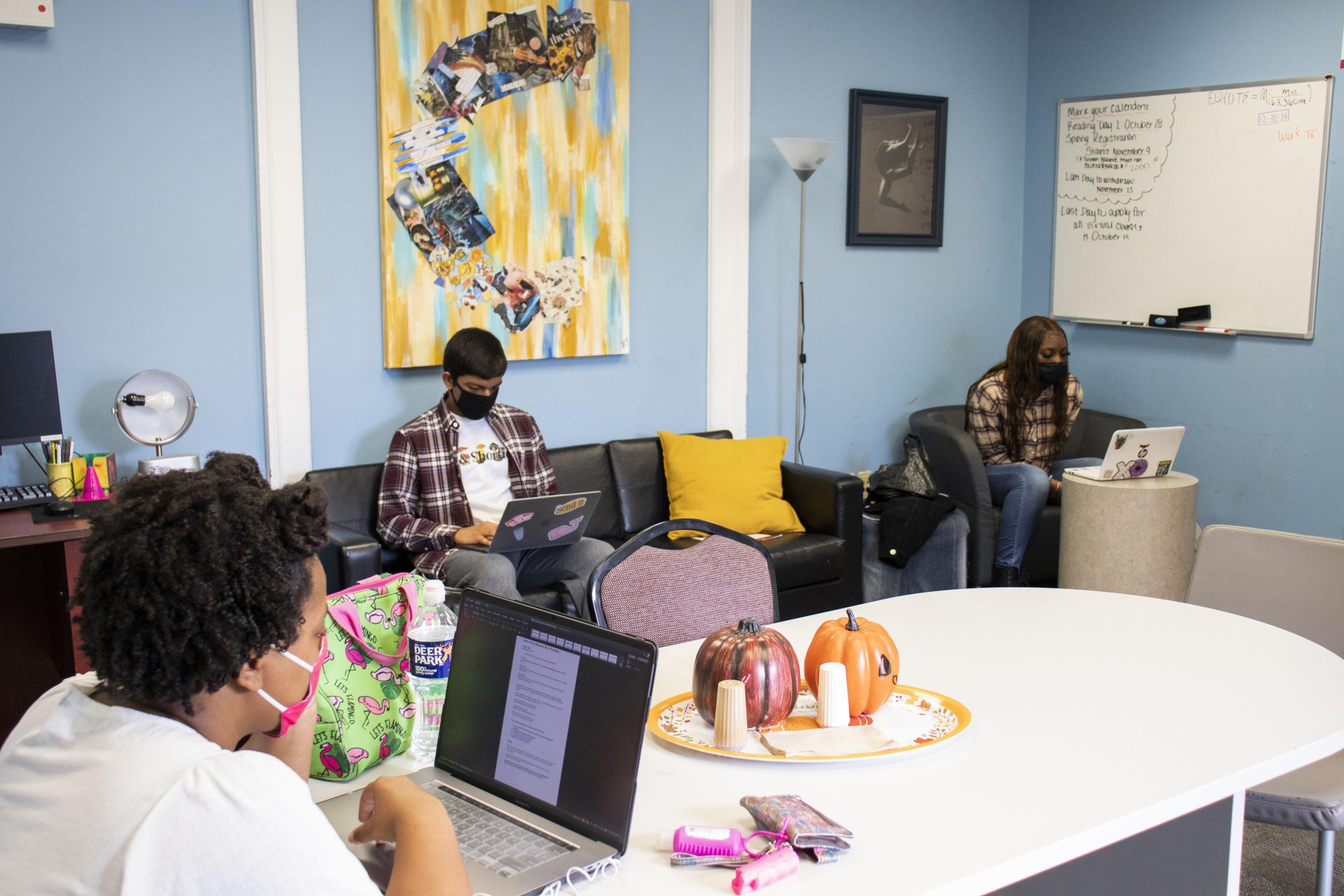COVID-19 protocols, have limited access to most spaces on campus, including the Drexel Library library and other academic buildings, creating new challenges for commuter students.
This semester, there are roughly 150 students who are commuting to campus and using the commuter lounge, which has been reconfigured to abide by COVID-19 safety guidelines and, now only allows eight students at a time to occupy the space, according to Nancy Komada, Ph.D., director of transitioning students
Brianna Palmer ’23, who is commuting for the first time this year, said the lack of alternative spaces for commuter students on campus makes it difficult to manage her academics and social life.
We like to spend our time in the library, so since they have those [limited] library hours, it’s forcing us to go home, especially since there aren’t any visitors allowed in the dorms,” Palmer said. “If they would be a little more lenient, like extending the library hours or something along those lines, the experience of the commuters at St. Joe’s this year would be a little better.”
Library Director, Anne Krakow, said she has noticed non-residential students in the library who have no place to go.
“We put back the microwave in the [library] cafe because we got a request from a student that was bringing his lunches and his dinner,” Krakow said. “He had no other place to go.”
Prior to COVID-19, the Post Learning Commons and Drexel Library closed at midnight. But this semester, the hours were shortenedcut back, and the building started closing at 9 p.m. Krakow said she recognized the need for a change in library hours and addressed the problem accordingly by keeping the library open until 11p.m. starting on Oct. 4.
However when the library opens is still an issue for commuters, according to Bella Cocozza ’21, a commuter student for the past two years, who chose to go all online this semester due to the lack of available space on campus.
“The library doesn’t open until 8 [a.m.], so if you have an 8 a.m. [class] and need to get to campus at like 7 [a.m.] or 7:30 [a.m.], you really have nowhere to go,” Cocozza said.
Though the university has been trying to accommodate students with limited access to campus resources, commuter students are still struggling with university communication. Not only has this affected non-residential students’ ability to get involved and stay informed, but it has’s affected their desire to even want to be, Cocozza said.
“It’s definitely an ongoing struggle for commuter students to stay in touch,” Cocozza said. “I feel like there’s a negative stigma associated with commuter students [and] I think they just get lost in the shuffle of things because they’re bottom of the list.”
Palmer also said she doesn’t have the same access to resources this fall that she had last year when living in Lafarge Hall.
“With [COVID-19] cases on campus, updates, or any events that I might want to attend, there’s a limit to the access I have,” Palmer said. “As far as academics go, there’s definitely a halt on the amount of access I receive with tutoring or SI [supplemental instruction] sessions.”
Right now, university students must sign up to get notifications about on-campus events and updates. Komada said she wants to make the university notifications “opt-out” rather than “opt-in” for non-residential students to get more students involved.
“I had a work study [student] in my office go through and subscribe every freshman [commuter] to the university calendar, so now [those events] come into their mailbox everyday,” Komada said. “I’m trying to get every student to get that in their inbox.”
Cocozza said this lack of communication has been problematic, leaving commuter students onin the margins of the St. Joe’s student body.
“There’s been numerous times where different security updates [have been] tested with the student body. Sometimes I’ll get those updates, most times I won’t, which is definitely concerning,.” Cocozza said. “Even though I’m a commuter student, I’m still on campus.”



















































